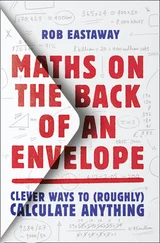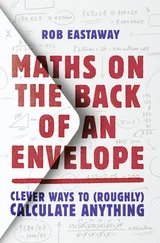Masterkey recognizes that everyone must pay their fair share, in one way or another, so as to be sure of a bed, a bite to eat, and a bit of nookie. Whoever breathes the air here has paid, or will pay, their share, as you said. Masterkey also understands that, as you said, medical files are as important as the File itself. She laughed when she accepted that. Right from the first time we met, she promised to get some imported medicine for my Uncle Mihai. It’s a good sign, I know. Next Wednesday we’re seeing each other again for a coffee.
THE PROFESSOR FELT THEburden of doubt, as so many times before. Moments of discouragement and loneliness when nothing made sense, and his weird occupation still less than anything else. Is the slave defined by his fear of death, the master by his will to take risks? Did fear or risk define his stubborn solitary resistance? Why can’t we all go to prison simultaneously? Why do I myself avoid prison? Why don’t I shout out loud my disgust?
The shades that visited him at night, and even the people he sometimes heard during the day, repeated the same petty phrases. “Mind your own business, stranger, stop interfering. You’re not going to change things, otherwise they’d have changed themselves. Get lost with those annoying questions of yours. What’s happening is nothing or anything, and it is not permitted to predict the future.”
He got up from the rack. To go out into the street, into the spring, where the humbled crowd was still surviving. To see what effect unshackled force has on a restricted medium. He took the lift, tram, trolley. That is, he went down into the street, into paradise. With a single thought: that he would go to the theater. He looked at the dirty street, the weary faces, the listless agitation. He stopped at a kiosk and moved antlike to the end of the line for a tasteless drink and a stale sandwich. Slices substituting for bread, with a red film in the middle substituting for salami. The substitute pedestrians moved forward awkwardly and in silence, salivating as they waited for the trophy.
When the time came to stretch out his hand, someone pulled his elbow back.
“What are you doing? Eating that garbage?”
He turned around apprehensively. The stern voice belonged to a stern gentleman. Should he recognize him, or should he not?
“Were you on your way somewhere? And why are you frowning like that?”
“Well, I’m going to the theater. On the off chance. Maybe I’ll find a ticket.”
“Bravo! And why the frown? Which theater?”
“The National. Where else?”
“What’s the play?”
“I don’t know. I haven’t got a ticket. Maybe I’ll strike it lucky.”
“What’s this, old man? Going to the theater like you go to the beach? Without knowing what play, what director, or anything else about it?”
“Well, come on now! The National. That means a national play. Like at the Comédie Française, where—”
“Okay, okay, but it’s no reason to be frowning like that. I won’t keep you. Anyway, you’ve still got some time: we can walk a bit of the way together. After all, we don’t see each other all that often: the thirty years’ peace — ha, ha — yes, that’s how long it’s been. Our thirty years’ war. You’re talking about a lifetime!”
A pleasant surprise, F  nic
nic  . Clear-cut judgments, icy objectivity. A nervous type, though. From time to time he rubbed his large dry palms together, and he kept adjusting his spectacles. He talked about his family. His wife is not one of those who stuff their pockets and bags with baksheesh, like so many people in restaurants, law courts, and everywhere. When it comes to his son, the conversation is broken: young people are too tough these days. As for Engineer Olaru, he works an enormous amount: he’s become pretty well irreplaceable. They stop at the corner of the street leading to the theater. F
. Clear-cut judgments, icy objectivity. A nervous type, though. From time to time he rubbed his large dry palms together, and he kept adjusting his spectacles. He talked about his family. His wife is not one of those who stuff their pockets and bags with baksheesh, like so many people in restaurants, law courts, and everywhere. When it comes to his son, the conversation is broken: young people are too tough these days. As for Engineer Olaru, he works an enormous amount: he’s become pretty well irreplaceable. They stop at the corner of the street leading to the theater. F  nic
nic  bows briefly to a woman passing by. The professor had been staring at her already, before she came closer.
bows briefly to a woman passing by. The professor had been staring at her already, before she came closer.
“Who’s the lady?”
“Oh, someone. It’s not important.”
F  nic
nic  is about to resume his family history, but Tolea is not paying attention. The woman in jeans has just turned the corner and disappeared.
is about to resume his family history, but Tolea is not paying attention. The woman in jeans has just turned the corner and disappeared.
“Who was she?”
“Just a. . Emilia. It’s not important. Emilia, her name’s Emilia Ianuli, I think.”
F  nic
nic  seems ready to say more, but his interlocutor is hurrying off in the direction of the theater, really speeding up to catch the comet.
seems ready to say more, but his interlocutor is hurrying off in the direction of the theater, really speeding up to catch the comet.
But it’s no use: the magnificent woman has vanished.
The crowded pavement in front of the theater. The theatergoer makes for the box office. A doll with curly hair is chatting to a doll whose hair is tied in a loop. The theatergoer presses his head against the glass. The doll couldn’t care less. The theatergoer coughs provocatively.
“What do you want?”
By the time he replies, the toy has turned her head back, as if on a spring, to the one beside her. I want you to tell me who F  nic
nic  Olaru really is, the theatergoer was on the point of stammering out. I didn’t have time to confront him with his own version of things, to find out who the comrade is replacing. I was hurrying to catch up with the fairy-tale lady. I hurried off, but the opportunity was lost, a lost opportunity, mumbled the stranger, overcome.
Olaru really is, the theatergoer was on the point of stammering out. I didn’t have time to confront him with his own version of things, to find out who the comrade is replacing. I was hurrying to catch up with the fairy-tale lady. I hurried off, but the opportunity was lost, a lost opportunity, mumbled the stranger, overcome.
“Did you say something?”
“Not yet. I haven’t started. I’d like a ticket.”
“What for?”
“Well, a lost opportunity — what else. For that.”
“What opportunity? Which that ?”
“Well, this evening’s performance.”
“This evening we have A Lost Letter .”
“Exactly. The Letter . Yes, for this evening.”
“We’re sold out for this evening.”
She turned back to the clockwork doll on her left and continued telling her about the little boots the Libyan living with Mariana had brought for her, which she had then sold to Kati. But they were too tight, so they found their way via a student cousin to—
“What do you mean you’re sold out? It’s the national play, the hallmark of the national theater! It’s on every season, all the time.”
“It’s not on every season, I can tell you! Sometimes it’s not on at all. It’s not authorized, if you want to know. In fact, the rumor is that the season’s ending early, precisely because of this play, so that it’s not shown.”
“So now we’re following every little rumor, are we? The play’s lasted a hundred years and it’ll be with us as long as this country is, this sad jolly little country of ours. Anyone who bans this play bans the country, miss. We can’t believe every little rumor, follow all these — How could it be the last one, how could it be a lost opportunity. No way! The play, I mean. It’s a classic. It is a classic, after all, miss.”
“That’s just it! Because it’s a classic, sir! The crowds flocking to see it, sir. And stop holding me up: I’ve got things to do. I told you: we haven’t got any tickets. I’m sorry, there’s nothing I can do. You’re just unlucky.”
Читать дальше

 nic
nic 










